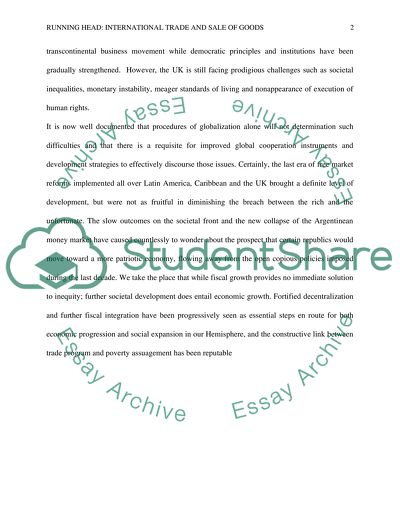Cite this document
(“The international transaction for the sale of goods is far too complex Essay”, n.d.)
The international transaction for the sale of goods is far too complex Essay. Retrieved from https://studentshare.org/law/1632986-the-international-transaction-for-the-sale-of-goods-is-far-too-complex-to-attempt-harmonisation-of-international-trade
The international transaction for the sale of goods is far too complex Essay. Retrieved from https://studentshare.org/law/1632986-the-international-transaction-for-the-sale-of-goods-is-far-too-complex-to-attempt-harmonisation-of-international-trade
(The International Transaction for the Sale of Goods Is Far Too Complex Essay)
The International Transaction for the Sale of Goods Is Far Too Complex Essay. https://studentshare.org/law/1632986-the-international-transaction-for-the-sale-of-goods-is-far-too-complex-to-attempt-harmonisation-of-international-trade.
The International Transaction for the Sale of Goods Is Far Too Complex Essay. https://studentshare.org/law/1632986-the-international-transaction-for-the-sale-of-goods-is-far-too-complex-to-attempt-harmonisation-of-international-trade.
“The International Transaction for the Sale of Goods Is Far Too Complex Essay”, n.d. https://studentshare.org/law/1632986-the-international-transaction-for-the-sale-of-goods-is-far-too-complex-to-attempt-harmonisation-of-international-trade.


